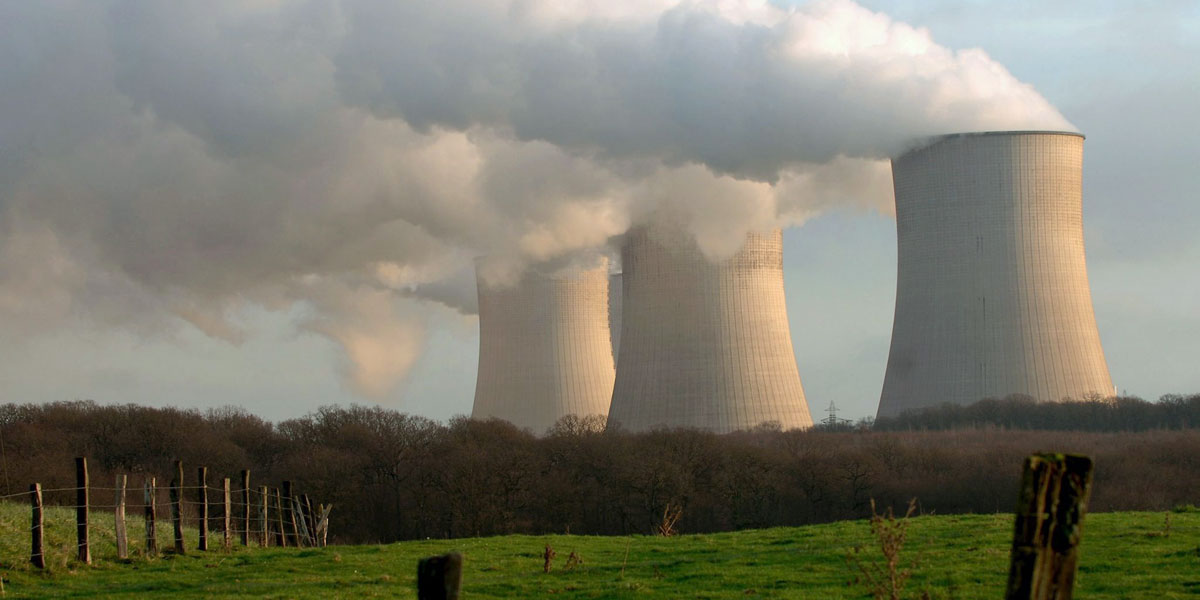Nuke inquiry will consider damage to SA’s reputation

Royal commissioner Kevin Scarce (left) with Premier Jay Weatherill. Photo: Nat Rogers/InDaily
Former Governor Kevin Scarce insists he will consider the potential impact on South Australia’s international reputation of any escalation of the state’s role in the nuclear fuel cycle.
Submissions to the royal commission over which he presides officially closed last week, although there were 10 to 20 negotiated extensions, and the feedback thus far unsurprisingly shows “a great disparity of views about going forward”.
Scarce insists he remains uncommitted, but freely admits he is “positively disposed to the discussion”.
“Absolutely, I’ve been making a point for best part of 12 months that we have a competitive advantage here in the state, and it seems to me we need to have a mature discussion about what the opportunities are,” he told InDaily.
But, while the inquiry’s terms of reference don’t dictate as such, he says he will consider arguments about the potential reputational cost for SA, a state which maintains a moratorium on GM foods essentially to protect a much-hyped “clean, green” premium food image.
“Yeah, it’s one of the questions we’ve asked throughout our issues paper – do people perceive this will damage our reputation, and if so why?” Scarce told InDaily.
He also explored the issue on the commission’s recent fact-finding mission to various overseas nuclear facilities, including in France and Finland.
“We made a point to look at France and Finland’s nuclear facilities and whether that had a negative image on the nation,” he said.
“France has a reputation for outstanding food and wine and 50 reactors or so throughout the country.”
That comment suggests the commissioner sees the potential that premium food and wine branding can still flourish in a nuclear future, although he maintains the question still “needs to be evaluated”.
He says one of the commission’s roles, “if we do think (nuclear) is the right approach”, is to outline a strategy based on world’s best practice for government to “engage the community on these difficult issues”.
Exporting premium food and wine forged in SA’s clean environment is a concept emphasised both in Premier Jay Weatherill’s seven strategic priorities and 10 economic priorities, but Scarce says: “I think those 10 priorities are the short-term approach to the challenges that face the economy (whereas) this is a much, much longer term review.”
“If we started tomorrow and had agreement throughout the community, it would still take 10 to 15 years before we were engaged in these activities… We’d need to build the knowledge, the skills, the infrastructure … all the regulatory framework.
“We’re trying to make evaluations of energy demand, of where the uranium market might be in 15 to 25 years’ time.
“These are significant pieces of work which have to be estimated by a significant number of assumptions … it’s a complex piece of work.”
Scarce says the overseas experience suggests “what we’d be probably advocating is a process to drill down on the issues in contention, because this is a very short royal commission for its very expansive terms of reference”.
“There needs to be a much more detailed investigation into the opportunities, should the Government and we agree on the way forward,” he said.
“The thing we’ve seen throughout our overseas travels is the importance of community, and discussing the process with the community.”
And he insists “if the report and the financial analysis suggest that there’s little financial benefit for the state, then the very reason to go about and do this wouldn’t be there”.
The commission was established to consider potential expansion opportunities in four major areas, exploration and mining, processing, generation and storage, and it is the latter which has aroused the most public feedback, both positive and negative.
“I’ve seen a lot of speculation (reported) that (a waste dump) might be the easiest option and generate the most revenue, but there’s no data on that at this stage,” Scarce said.
“There’s concern from some groups that they don’t want to see us become a storage facility for the world, (but) on the other hand there are submissions suggesting it’s a great economic opportunity and that it can be stored safely.
“It’s certainly something we must quantify.”
Scarce spoke to InDaily after Conservation Council chief Craig Wilkins last month criticised the inquiry’s consultation process, following a community meeting to which nobody showed up.
“That particular event was established at the request of the Aboriginal community (and) we didn’t promote it as well as we should have,” Scarce concedes.
However, he says a rescheduled event drew “10 or 12 people”, and the commission has appointed an indigenous coordinator to help communities with submissions.
“You’d have to say the vast majority of those are not in favour of any part of the nuclear fuel cycle, I suspect shaped by the Maralinga experience,” he said.
“I think it would be fair to say some have a perception that these activities might be in their areas, so there’s much more worry, and I’d expect that … (but) it’s not in our terms of reference to decide on a final location.
“That’s a piece of work that will take a considerably longer time than what we’ve got.”
As the commission gears up for a new spate of public forums, Scarce maintains other events have been well attended albeit “probably not by as many people as I might have expected”.
It seems, he says, that nuclear power is “less of an issue than it was 20 years ago, although I don’t underestimate the impact of Fukushima on confidence and the willingness of the community to embrace this technology”.
“I think they’re less terrified (but) I think there’s still concern,” he said.
“The message that I get from the vast majority is: ‘I simply don’t know enough about it, I want to know more about it so I can make up my mind’.”





